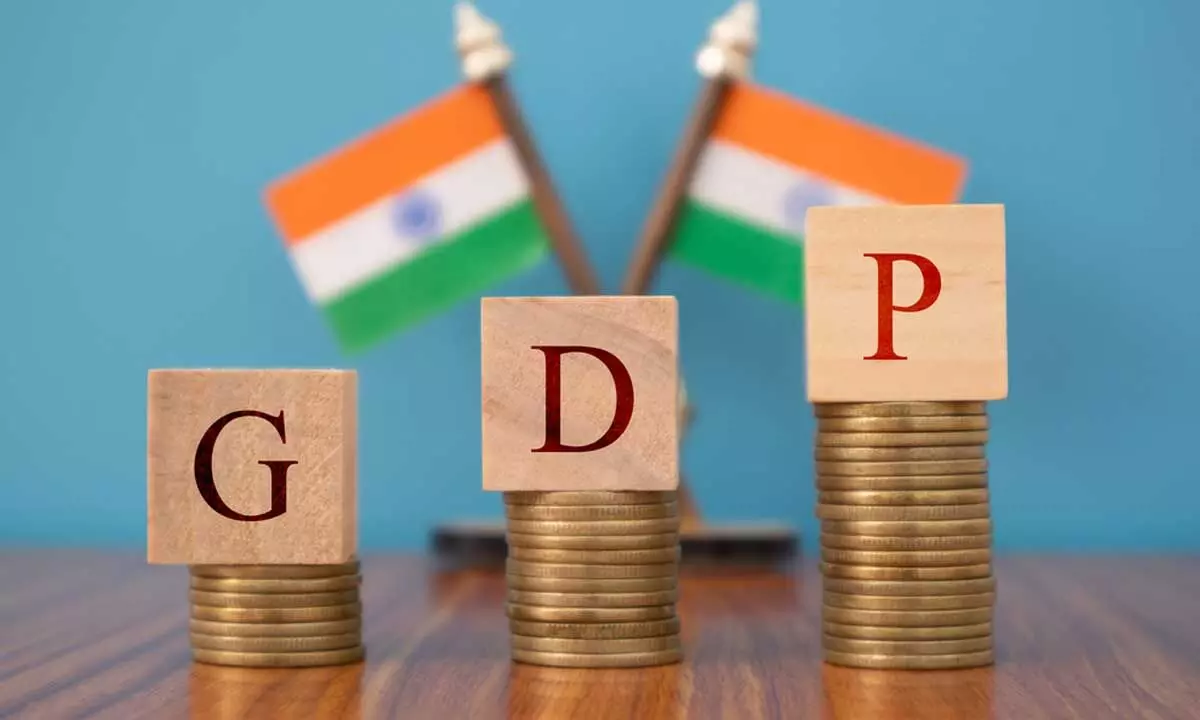What should India do to become $30 trn economy?
If govt - indeed the entire political class - privileges facts, reason, & commonsense over sentimentalism and sanctimoniousness, the Commerce Minister’s claims could turn out to be true
image for illustrative purpose

Reforms here do not refer only to economic ones, though they are a sine qua non for general prosperity, but also in all walks of public life - administrative, police, judicial, social, religious, and cultural reforms. All these are interconnected. There cannot be prosperity without economic development which, in turn, is very difficult if the bureaucratic procedures are long and tedious, the law and order situation is bad, and legal enforcement of contracts takes inordinately long
At a time when India's growth prospects are being revised downwards, inflation is soaring, and rupee is in a free fall, it is nice to have a leading light of the Narendra Modi government giving a pep talk. Addressing students at the Indian Institute of Technology (IIT) Chennai on Sunday, Commerce Minister Piyush Goyal said: "World today recognizes that India's time has arrived."
Americans and Europeans would also want to engage with sustainability, newer technologies at an affordable price, and they would look forward to you for it, he said. "India offers an unbeatable combination of talent, scale, and skill to the world."
At another event the same day in Chennai, he sounded bullish on exports, asserting that India will achieve the export target of $2 trillion by 2030. Indian exports, he reportedly said, will be able to wither the global headwinds and will surpass growth in exports by a big margin.
The Commerce Minister did not stop at exports; he went on to predict a $30-trillion economy - or almost 10 times of the present size - with 25 per cent share in exports by 2047. In other words, 'Achhe Din' are on the horizon. Amrit Kaal, as his government has termed the 2022-47 period, will witness momentous economic growth and development.
His statement may appear as political hyperbole, but the fact is that whatever Goyal has said is eminently attainable. There are, however, a few conditionalities involved: the attainability of the above-mentioned targets is predicated upon a few measures that the governments in India, at the Centre and in states, have to take.
First and foremost, the powers that be must recognize the fact that three things are needed to boost the economy: reforms, reforms, and reforms. And then they must act on the reformist agenda in earnest.
Reforms here do not refer only to economic ones, though they are a sine qua non for general prosperity, but also in all walks of public life - administrative, police, judicial, social, religious, and cultural reforms. All these are interconnected. There cannot be prosperity without economic development which, in turn, is very difficult if the bureaucratic procedures are long and tedious, the law and order situation is bad, and legal enforcement of contracts takes inordinately long.
Second, the government should stop intervening in economic processes. The interventions like Open Network Digital Commerce or ONDC, a protocol on the lines of UPI to check the dominance of global e-commerce giants like Amazon and Walmart. Goyal's own Ministry recently launched ONDC. Such interventions must be stopped forthwith.
Third, the government must ensure that the law-enforcement agencies like the Enforcement Directorate and the Central Bureau of Investigation are not misused and abused. This has created a fear psychosis among the country's businesspersons. This is also the reason that many of them have left India for the countries which have a better record in upholding civil liberties.
Fourth, the government, in consultation with all political parties, must draw up a negative list -that is, the decisions and actions that they would not take and execute. These must be red lines that parties would not cross in their rush to woo the electorate. This may curb the menaces of mindless populism and freebies to some extent.
Fifth, the government must focus on such real issues as unemployment, inflation, and pollution instead of promoting persons and groups who look for shivlings in every mosque or want to change the name of every city, institution, etc. There are a zillion issues that need the attention of the government; changing names is not one of them. Sixth, it would be better if the government focused on the present problems and stopped blaming the previous rulers for them. For decades, the Congress had been accusing the British for poverty, backwardness, etc.; now the government blames Congress rule for over half a century for all the problems. It is better to address issues than finding scapegoats.
In essence, if the government - indeed the entire political class - privileges facts, reason, and commonsense over sentimentalism and sanctimoniousness, the Commerce Minister's claims could turn out to be true.

